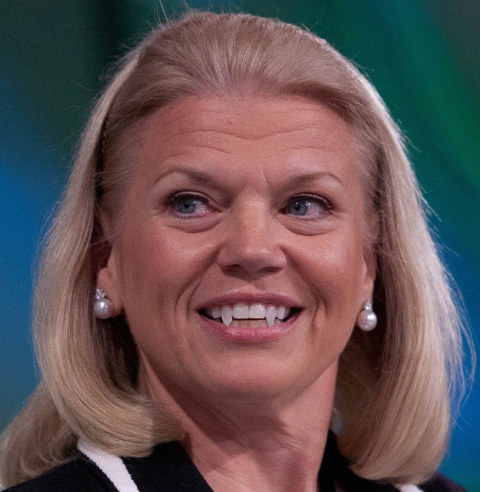A workaround that only patent aggressors and software patents proponents like IBM can coexist with

Photo source (modified slightly): The 10 Most Powerful Women in Technology Today
Summary: Oracle (from OIN) suing Google (from OIN) over Android (Linux-based) and seeking nearly $10,000,000,000 in 'damages' serves to show that OIN is not a workaround/solution to the key problem, which is software patents
Apple's patent war on Android is still in headlines this week [1, 2, 3] and there are a lot of articles about Oracle's case against Android in our daily links. No doubt, given that Oracle had joined OIN, its attack on Android proved that OIN is far from a solution. Oracle wants to recover the cost of buying Sun by just using patents that Sun workers worked towards, along with copyrights. "The case will have major ramifications for software patents and licensing the world over," this one report said.
Here is
a new article about the Linux Foundation and OIN. To quote the relevant part/s:
Meeting legal requirements is one of the key elements that large software companies factor in to their release cycles. They have teams that check for software patents that may impact their code, make sure that every copyright is acknowledged and look at the detailed usage clauses in any third-party software that they use.
One of the reasons for doing this is to avoid expensive litigation from companies often referred to as patent trolls. These are companies that have purchased large software patent libraries. Their business model is to then use those libraries to bring lawsuits against developers and over the last decade we’ve seen a number of high profile lawsuits against companies such as IBM, Microsoft, Google and others. Some of these have been dismissed by the courts but others have been upheld costing hundreds of millions of dollars in both fines and costs.
While open source developers might think that they are immune from this type of issue they are not. It may be that a piece of software that has been released as open source is later alleged to have infringed a software patent. This would mean that anyone using that software could be found guilty of an infringement.
To help reduce the impact of patent claims Google, IBM, Red Hat, SUSE, NEC, Philips and Sony created the Open Innovation Network. The goal was to create a pool of defensive patents that could be used to protect Linux and developers using Linux. This has been successful with over 1946 companies signing up to the OIN to use their patents to defend themselves from attack.
When you work on software patents for a company -- no matter how benign a company -- you never know who will get/use them. See
the response I got from Red Hat staff (Alexandre Oliva) after writing this, having called for Red Hat to stop pursuing software patents and defang all existing ones. As Oliva put it, "when I realized this, some 6 years ago, I started campaigning for Red Hat to turn its Patent Promise into an actual license, but no luck so far. until this major problem is fixed, no more patent applications from me…"
A longtime critic of OIN,
Florian Müller, was among the first to point out that OIN was not effective because one OIN member (Oracle) sued another (Google). He now has
this new post which says: "There's an interesting parallel between Apple v. Samsung (meaning their first case, with respect to which the Supreme Court has granted certiorari) and the Oracle v. Google Android-Java copyright litigation: in both cases, most of the damages at issue are based on the theory of a disgorgement of infringer's profits, and at first sight, the amounts claimed by the right holders appear very high. There are even more similarities. For example, in both cases, the defendants are key Android players. But there are also some important factual differences, not limited to the fact that design patents and copyright are different types of intellectual property."
These high-profile cases come to show the dangers of software patents (
Novell's ended up in Microsoft's, Oracle's and Apple's hands and Red Hat's could end up anywhere, depending on who buys it and when) and the uselessness of OIN. The real reform people should campaign for is abolishment of software patents themselves. The next post will deal with other deficient reform ideas/strategies.
⬆

